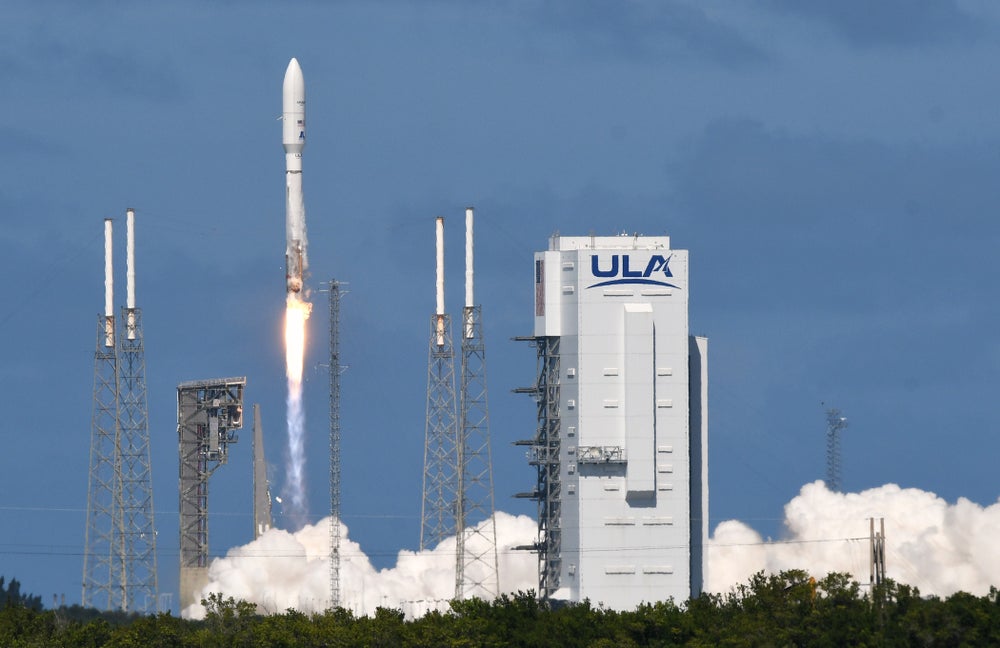
Amazon has tapped Elon Musk’s SpaceX to launch a series of internet satellites for its ambitious Project Kuiper constellation, CNN reported.
The deal, confirmed on Friday, is a somewhat unexpected move in the commercial space race since Amazon founder Jeff Bezos has his own aerospace company, Blue Origin — and Musk and Bezos have had a very public 15-plus year rivalry.
 Image Credit: Anadolu | Getty Images. Amazon’s Project Kuiper launches first internet satellite test mission.
Image Credit: Anadolu | Getty Images. Amazon’s Project Kuiper launches first internet satellite test mission.
Related: Amazon Signs Largest-Ever Commercial Rocket Deal With 3 Firms, Including Jeff Bezos’ Blue Origin
SpaceX will execute three Falcon 9 rocket launches to assist Amazon in deploying Project Kuiper constellation, the goal of which is to establish a global network of satellites providing internet access, positioning it as a direct competitor to SpaceX’s Starlink, which has over 5,000 satellites already in orbit.
This tactical partnership comes amid Amazon’s ongoing challenges with its initial launch provider, Blue Origin. The latter’s New Glenn rocket has been subject to lengthy delays and is now slated for its inaugural voyage next year at the earliest.
New Glenn, which is powered by seven BE-4 engines and can launch more than 13 metric tons to geostationary transfer orbit (GTO), is a heavy-lift launch vehicle specifically suited to lift significant mass and volume to low Earth orbit (LEO), according to Blue Origin.
To bolster its deployment timeline, Amazon inked deals (valued in the billions) for over 70 launches with other providers, including Blue Origin, United Launch Alliance, and Arianespace, per CNN. Despite these agreements, a shareholders’ lawsuit filed by The Cleveland Bakers and Teamsters Pension Fund in August alleged that executives dismissed SpaceX’s competitive launch costs in their earlier decisions.
An Amazon spokesperson rejected the allegations in the lawsuit as “completely without merit” and emphasized the new SpaceX deal as an addition to, not a replacement for, the planned launches with other providers.
Related: Musk Chirps Bezos About His ‘Full-Time Job’ Amid Back and Forth Battle With the FCC
Still, as the legal and corporate saga unfolds, Rajeev Badyal, vice president of technology for Project Kuiper, expressed confidence in the prototype satellites’ performance and the company’s plan to commence customer beta testing as early as the end of 2024.
“So far, everything that we’ve tested on ground, we’re getting the same results up in space,” Badyal said.






